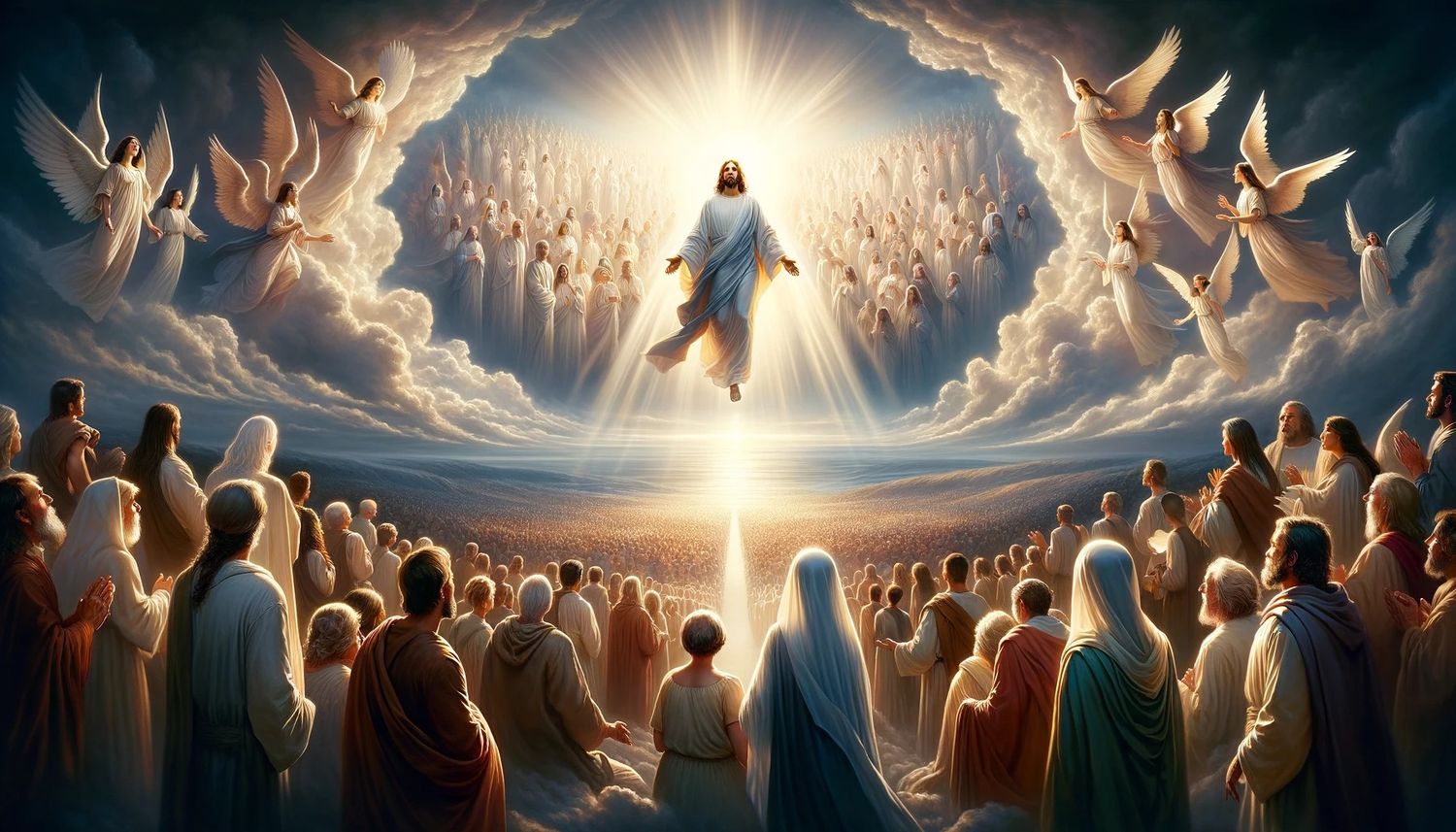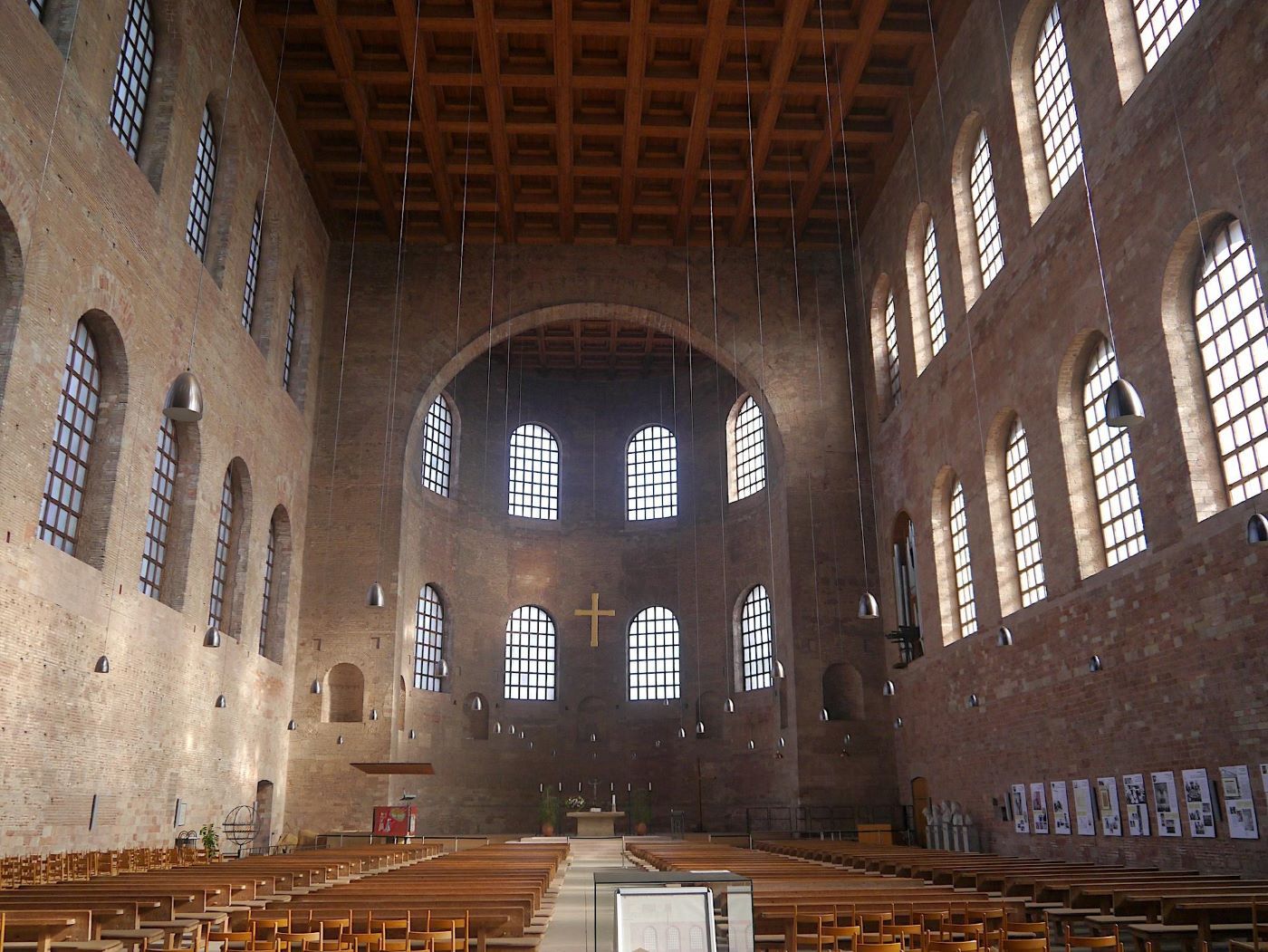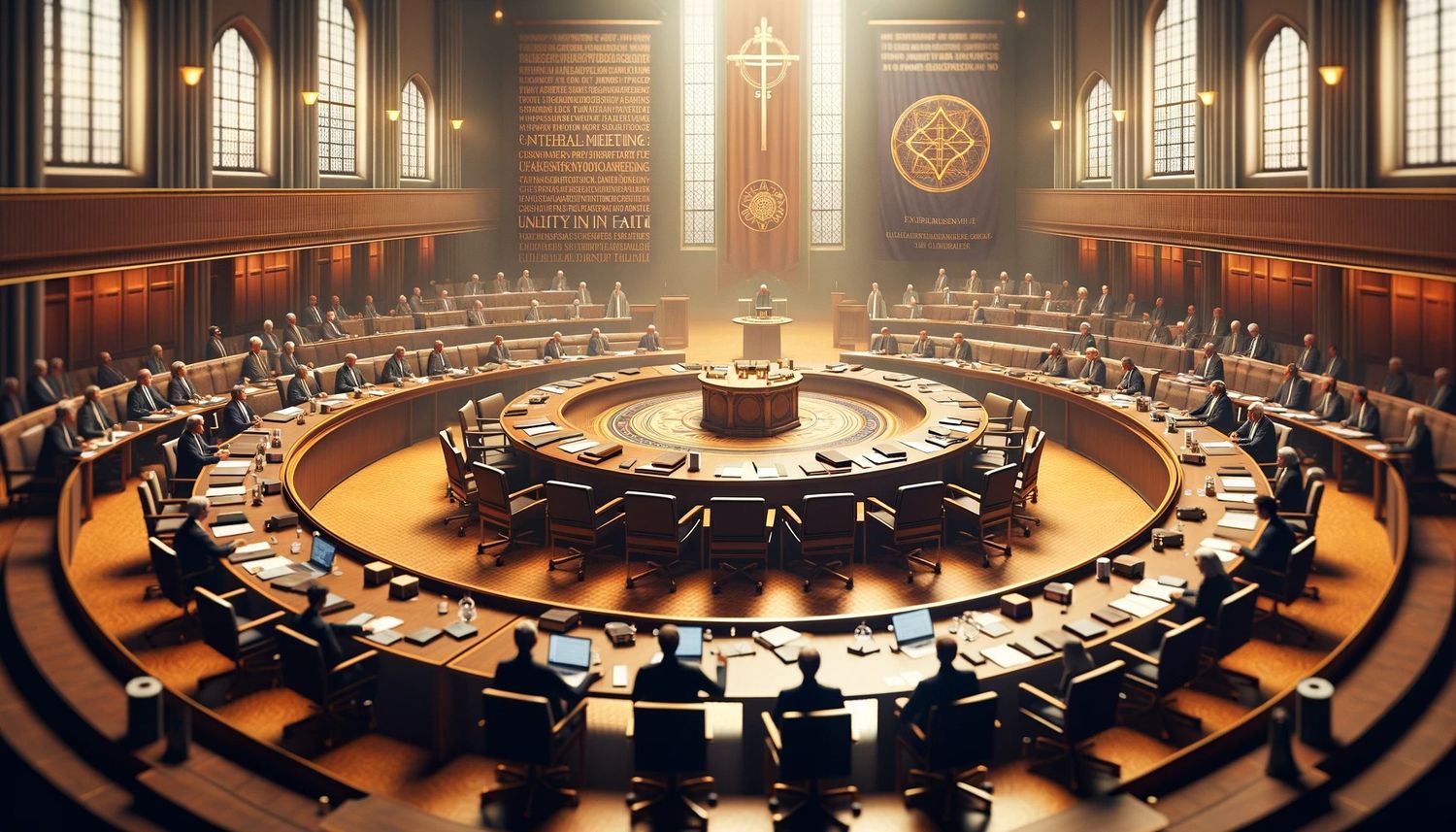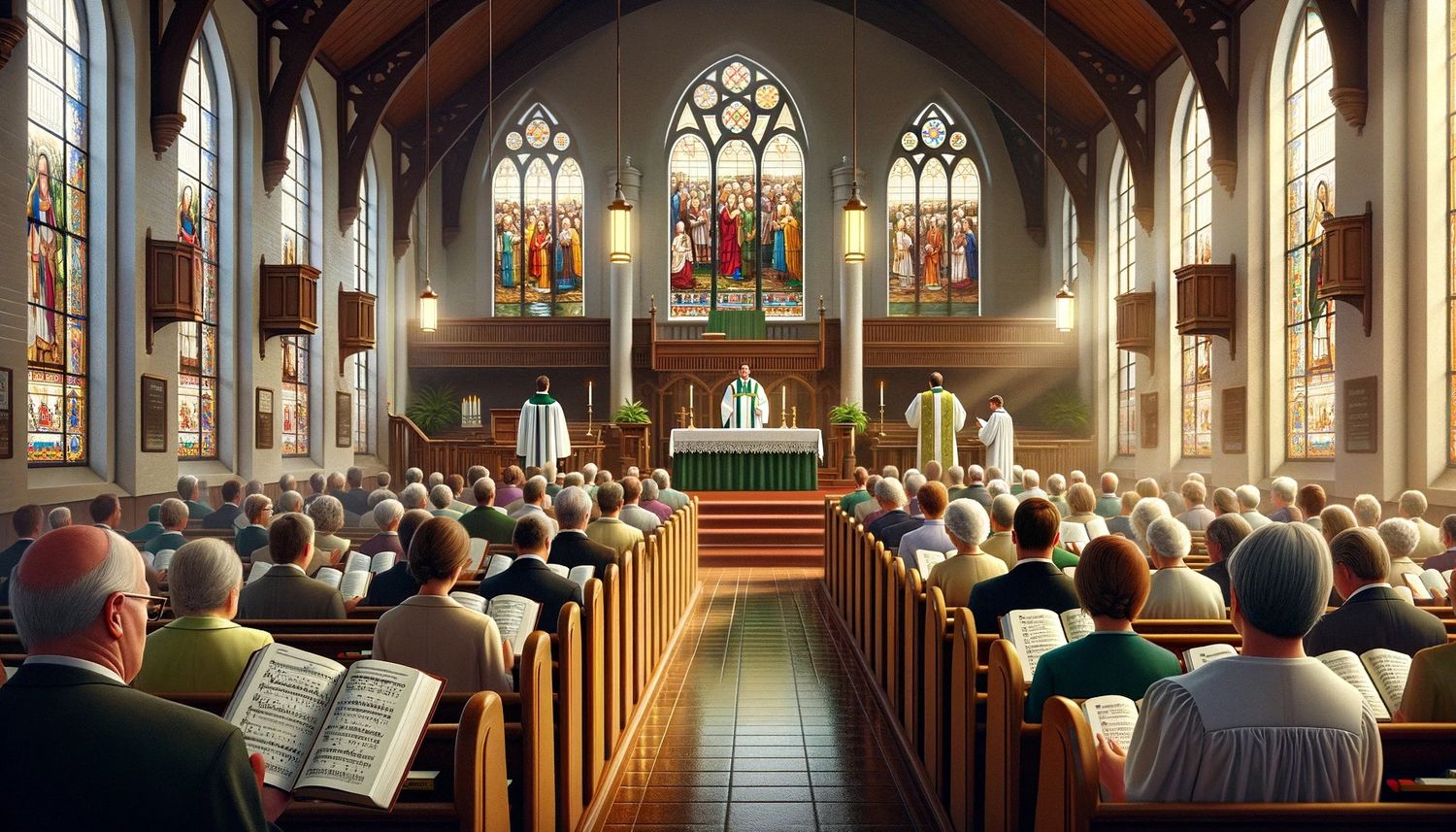Home>Theology and Spirituality>What Is The Lutheran View Of The End Times


Theology and Spirituality
What Is The Lutheran View Of The End Times
Published: March 3, 2024
Jason DeRose, Managing Editor at Christian.net, uses his expertise in religion and journalism to deepen understanding of faith's societal impacts. His editorial leadership, coupled with a strong academic background, enriches the platform’s diverse content, earning him recognition in both journalism and religious circles.
Discover the Lutheran perspective on the end times and gain insights into theology and spirituality. Explore key beliefs and interpretations in this comprehensive guide.
(Many of the links in this article redirect to a specific reviewed product. Your purchase of these products through affiliate links helps to generate commission for Christian.net, at no extra cost. Learn more)
Table of Contents
Understanding Lutheran Eschatology
Lutheran eschatology refers to the study of the end times or the last things according to the beliefs and teachings of the Lutheran tradition. It encompasses the Lutheran perspective on the second coming of Christ, the resurrection of the dead, the final judgment, and the ultimate destiny of humanity. Lutheran eschatology is rooted in the teachings of Martin Luther and the Lutheran Confessions, which shape the understanding of the end times within the Lutheran faith.
-
Biblical Foundation: Lutheran eschatology is based on a careful interpretation of the Bible, particularly the New Testament. The Lutheran perspective on the end times is derived from the teachings of Jesus Christ and the apostles as recorded in the Scriptures. The Lutheran tradition emphasizes the importance of interpreting eschatological passages in light of the overall message of salvation through faith in Christ.
-
Historical Context: Understanding Lutheran eschatology requires consideration of the historical context in which the Lutheran tradition emerged. The events of the Reformation, including Martin Luther's emphasis on the authority of Scripture and justification by faith, influenced the development of Lutheran views on the end times. The Lutheran Confessions, such as the Augsburg Confession and the Smalcald Articles, provide insights into the eschatological beliefs of the Lutheran Church.
-
Hope and Assurance: In Lutheran eschatology, there is a strong emphasis on the hope and assurance that believers have in the promises of God regarding the future. The Lutheran perspective on the end times is characterized by a confident expectation of Christ's return and the fulfillment of God's redemptive purposes. This hope is grounded in the assurance of salvation through faith in Christ and His atoning work on the cross.
-
Continuation of the Church: Lutheran eschatology affirms the ongoing existence and mission of the Church until the return of Christ. The Lutheran tradition teaches that the Church will continue to proclaim the Gospel and administer the sacraments as it awaits the consummation of all things in the eschaton. This understanding shapes the role and mission of the Church in the present age as it anticipates the fulfillment of God's kingdom.
-
Tension of the "Already" and "Not Yet": Lutheran eschatology acknowledges the tension between the "already" and "not yet" aspects of the kingdom of God. Believers experience the blessings of salvation and the presence of the Holy Spirit in the "already," yet they also await the full realization of God's kingdom in the "not yet." This tension informs the Lutheran understanding of the present age and the future hope that is to come.
In summary, understanding Lutheran eschatology involves recognizing its biblical foundation, historical context, emphasis on hope and assurance, continuation of the Church's mission, and the tension between the "already" and "not yet" aspects of God's kingdom. These elements shape the Lutheran view of the end times and provide a framework for how believers in the Lutheran tradition approach and anticipate the culmination of God's redemptive purposes.
Read more: What Is A Lutheran
The Role of Christ in Lutheran End Times Beliefs
-
Return of Christ: Central to Lutheran end times beliefs is the anticipation of the return of Christ. Lutherans affirm the biblical teaching that Jesus Christ will come again in glory to judge the living and the dead. This belief is rooted in the words of Jesus Himself, as recorded in the Gospels, and is a foundational aspect of Lutheran eschatology. The return of Christ is seen as the culmination of God's redemptive plan and the ultimate fulfillment of His promises to His people.
-
Judgment and Redemption: In Lutheran end times beliefs, Christ plays a pivotal role as the righteous judge and the redeemer of humanity. His return is associated with the final judgment, where all individuals will be held accountable for their actions and faith. For believers, the return of Christ signifies the completion of their redemption, as they will be raised to eternal life in His presence. Conversely, those who have rejected Christ will face the consequences of their unbelief.
-
Victory Over Evil: The Lutheran view of the end times emphasizes Christ's victory over sin, death, and the powers of darkness. His return is anticipated as the ultimate triumph over all that opposes God's kingdom. This understanding brings hope and assurance to believers, as they look forward to the day when Christ will establish His eternal reign of righteousness and peace.
-
Fulfillment of Promises: Christ's role in Lutheran end times beliefs is intricately connected to the fulfillment of God's promises. His return signifies the realization of the eschatological hope, where the purposes of God will reach their consummation. This aspect of Lutheran eschatology underscores the trustworthiness of God's word and the certainty of His faithfulness in bringing about the final restoration of all things through Christ.
-
Source of Comfort and Encouragement: The role of Christ in Lutheran end times beliefs serves as a source of comfort and encouragement for believers. The assurance of Christ's return and the ultimate establishment of His kingdom provide strength and hope in the midst of trials and challenges. This aspect of Lutheran eschatology points to the significance of Christ's ongoing presence and His future reign as the basis for enduring faith and perseverance.
In summary, the role of Christ in Lutheran end times beliefs is characterized by His anticipated return, role as judge and redeemer, victory over evil, fulfillment of God's promises, and source of comfort and encouragement for believers. These aspects of Christ's role shape the Lutheran understanding of the end times and underscore the centrality of Christ in the ultimate consummation of God's redemptive purposes.
The Importance of the Resurrection in Lutheran Theology
-
Central Tenet: The resurrection holds a central place in Lutheran theology, serving as a foundational tenet of the faith. Lutherans affirm the bodily resurrection of Jesus Christ as a historical event with profound theological significance. The resurrection is viewed as the linchpin of the Christian faith, demonstrating God's victory over sin and death and providing assurance of the hope of eternal life for believers.
-
Assurance of Salvation: In Lutheran theology, the resurrection of Christ is inseparable from the assurance of salvation for believers. The bodily resurrection of Jesus serves as the guarantee of the future resurrection of all who are in Christ. This understanding brings comfort and confidence to individuals, assuring them that death does not have the final word and that they will share in the resurrection to eternal life through their union with Christ.
-
Defeat of Death: The resurrection is celebrated in Lutheran theology as the definitive defeat of death. Through Christ's resurrection, death is conquered, and the power of sin is broken. This victory over death is a cause for joy and hope within the Lutheran tradition, as it signifies the restoration of life and the promise of new creation in the eschatological future.
-
Justification and New Life: The importance of the resurrection in Lutheran theology is intimately connected to the doctrine of justification. The risen Christ is the source of new life for believers, and His resurrection is the basis for their justification before God. Lutherans emphasize that through faith in Christ, individuals are united with Him in His death and resurrection, experiencing the forgiveness of sins and the gift of new, transformed life.
-
Easter Hope: The resurrection is a focal point of Easter celebrations within the Lutheran Church. It is a time of rejoicing and proclamation of the resurrection of Christ as the cornerstone of the Christian faith. The Easter message of Christ's triumph over death and the promise of resurrection to eternal life resonates deeply within Lutheran theology, shaping the hope and confidence of believers in the face of mortality and the challenges of life.
In summary, the importance of the resurrection in Lutheran theology is multifaceted, encompassing its role as a central tenet of the faith, the assurance of salvation, the defeat of death, the connection to justification and new life, and the source of Easter hope. The resurrection of Christ holds profound significance within Lutheran theology, shaping the understanding of God's redemptive work and the hope of believers in the promise of eternal life.
The Lutheran View of the Antichrist and Tribulation
-
Scriptural Foundation: The Lutheran view of the Antichrist and tribulation is grounded in a careful interpretation of biblical passages, particularly those found in the New Testament. Lutherans look to the teachings of Jesus, the writings of the apostles, and the prophetic literature, such as the book of Revelation, to discern the nature of the Antichrist and the tribulation period. This approach emphasizes the importance of understanding these eschatological themes within the broader context of God's redemptive plan.
-
Antichrist as a Spiritual Reality: In Lutheran theology, the concept of the Antichrist is not confined to a single individual figure, but is understood as a spiritual reality that opposes Christ and His kingdom. The Lutheran Confessions, such as the Smalcald Articles, identify the Antichrist with the teachings and practices that are contrary to the Gospel and the true faith. This view allows for a recognition of various manifestations of the Antichrist throughout history, rather than a singular end-time figure.
-
Tribulation as Persecution and Testing: Lutherans acknowledge the reality of tribulation as a period of persecution and testing for the Church. The Lutheran perspective on tribulation aligns with the biblical portrayal of the challenges and hardships that believers may face in the course of their faithfulness to Christ. While the tribulation is seen as a present reality, Lutherans also affirm the hope of Christ's ultimate victory and the final deliverance of His people.
-
Hope in the Midst of Tribulation: The Lutheran view of the tribulation emphasizes the hope and assurance that believers have in the midst of trials and difficulties. The teachings of Martin Luther and the Lutheran Confessions underscore the comfort and strength that come from the promises of God, even in the face of tribulation. This perspective encourages perseverance and trust in God's faithfulness, knowing that He is present with His people in their suffering.
-
Christ's Ultimate Triumph: Central to the Lutheran view of the Antichrist and tribulation is the confidence in Christ's ultimate triumph over all opposing forces. While tribulation may be a present reality, Lutherans look forward to the day when Christ will return in glory to bring an end to all suffering and establish His eternal kingdom. This eschatological hope serves as a source of encouragement and perseverance for believers as they navigate the challenges of the present age.
In summary, the Lutheran view of the Antichrist and tribulation is characterized by its scriptural foundation, understanding of the Antichrist as a spiritual reality, recognition of tribulation as persecution and testing, emphasis on hope in the midst of tribulation, and confidence in Christ's ultimate triumph. These elements shape the Lutheran perspective on eschatological themes and provide a framework for how believers in the Lutheran tradition approach and navigate the realities of the end times.
The Final Judgment According to Lutheran Teaching
-
Scriptural Basis: The final judgment holds a significant place in Lutheran teaching and is firmly rooted in the teachings of the Bible, particularly the New Testament. Lutherans draw from the words of Jesus and the apostles, as well as the prophetic writings, to form their understanding of the final judgment. The Lutheran tradition emphasizes the certainty and solemnity of the final judgment, affirming its reality as a decisive event in God's redemptive plan for humanity.
-
Universal Accountability: According to Lutheran teaching, the final judgment entails universal accountability before God. All individuals, both the living and the dead, will stand before the judgment seat of Christ to give an account of their lives. This understanding aligns with the biblical portrayal of the final judgment as a time when every person will be held answerable for their thoughts, words, and deeds, and will receive just recompense based on their faith and actions.
-
Justice and Mercy: Lutherans emphasize the dual aspects of justice and mercy in the final judgment. While the judgment reflects God's righteous judgment upon sin and unbelief, it also demonstrates His mercy and grace towards those who have placed their trust in Christ. The Lutheran teaching on the final judgment underscores the tension between God's justice and His redemptive love, affirming that the judgment is an expression of both His righteousness and His compassion.
-
Eternal Destinies: The final judgment in Lutheran teaching results in the determination of eternal destinies. Those who have embraced faith in Christ as their Savior will receive the gift of eternal life in communion with God, while those who have rejected Christ will face the consequences of eternal separation from God. This understanding reflects the biblical portrayal of the ultimate outcomes for believers and unbelievers in the eschatological future.
-
Hope and Accountability: The Lutheran view of the final judgment balances the sobering reality of accountability with the hope that believers have in the promises of God. While the final judgment is a moment of reckoning, it is also a time when the faithfulness of God is fully revealed. This perspective encourages believers to live in light of the final judgment, knowing that their hope is anchored in the righteousness and faithfulness of God, who will bring all things to their ultimate fulfillment.
In summary, the final judgment according to Lutheran teaching is characterized by its scriptural foundation, universal accountability, the interplay of justice and mercy, determination of eternal destinies, and the balance of hope and accountability for believers. This understanding shapes the Lutheran perspective on the culmination of God's redemptive purposes and underscores the significance of the final judgment in the eschatological framework of the faith.















